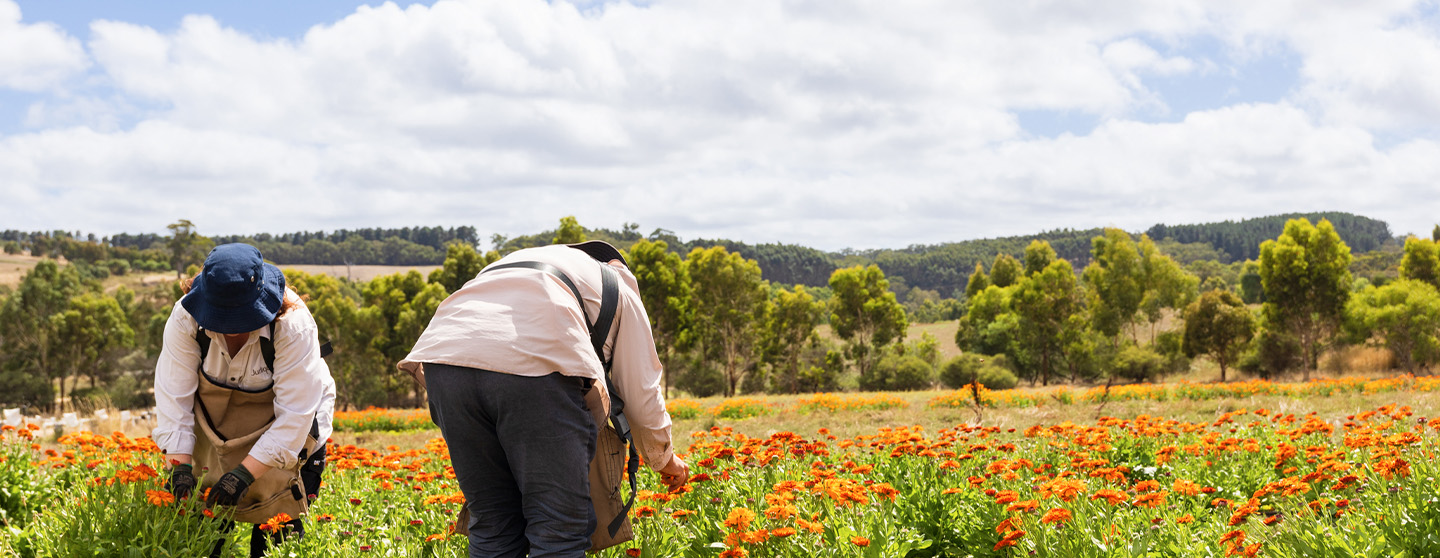

Jurlique International

South Australia, Australia
September 2023
Personal care products
Manufacturing
Australia,
China,
Hong Kong S.A.R.,
Japan,
Macau S.A.R.,
United Kingdom,
United States
Jurlique was established in Adelaide Hills, Australia in 1985. Our purpose is to inspire people to wellbeing through a connection to nature, self and others. At our farm, we replenish and respect the environment with a dedication to biodynamic* farming for over 35 years. Jurlique has been committed to sustainability since day one, continually striving to improve our sustainability efforts by setting goals and taking action in every area of the business, from the planet to our people, partners and naturally formulated products. While we care for the land, we are also committed to protecting and promoting the wellbeing of our people, working with like-minded partners to invoke positive change, and creating products that are holistic, pure and cultivated with uncompromising care.
Overall B Impact Score
Governance 13.4
Governance evaluates a company's overall mission, engagement around its social/environmental impact, ethics, and transparency. This section also evaluates the ability of a company to protect their mission and formally consider stakeholders in decision making through their corporate structure (e.g. benefit corporation) or corporate governing documents.
Workers 24.0
Workers evaluates a company’s contributions to its employees’ financial security, health & safety, wellness, career development, and engagement & satisfaction. In addition, this section recognizes business models designed to benefit workers, such as companies that are at least 40% owned by non-executive employees and those that have workforce development programs to support individuals with barriers to employment.
Community 14.0
Community evaluates a company’s engagement with and impact on the communities in which it operates, hires from, and sources from. Topics include diversity, equity & inclusion, economic impact, civic engagement, charitable giving, and supply chain management. In addition, this section recognizes business models that are designed to address specific community-oriented problems, such as poverty alleviation through fair trade sourcing or distribution via microenterprises, producer cooperative models, locally focused economic development, and formal charitable giving commitments.
Environment 31.7
Environment evaluates a company’s overall environmental management practices as well as its impact on the air, climate, water, land, and biodiversity. This includes the direct impact of a company’s operations and, when applicable its supply chain and distribution channels. This section also recognizes companies with environmentally innovative production processes and those that sell products or services that have a positive environmental impact. Some examples might include products and services that create renewable energy, reduce consumption or waste, conserve land or wildlife, provide less toxic alternatives to the market, or educate people about environmental problems.
Customers 2.8
Customers evaluates a company’s stewardship of its customers through the quality of its products and services, ethical marketing, data privacy and security, and feedback channels. In addition, this section recognizes products or services that are designed to address a particular social problem for or through its customers, such as health or educational products, arts & media products, serving underserved customers/clients, and services that improve the social impact of other businesses or organizations.